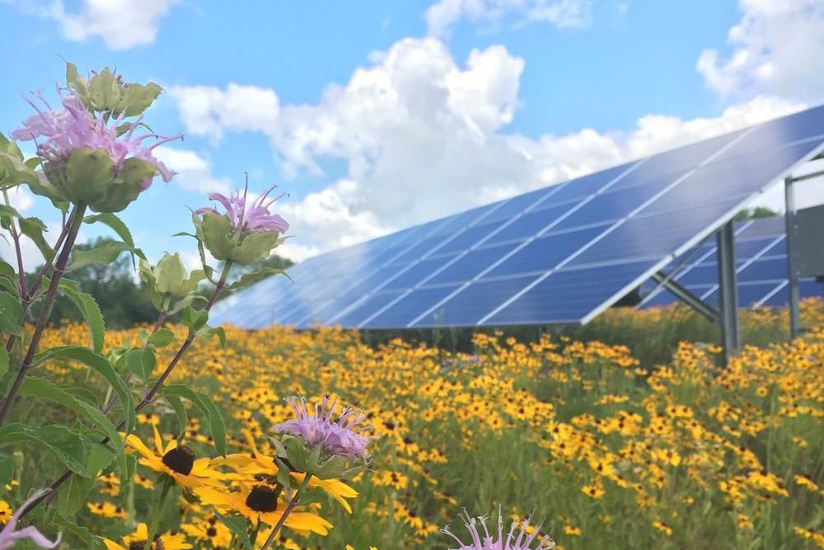Are solar farms 'trashing the countryside'?
At Uttlesford District Council Stakeholders’ meeting last week, it was claimed that local solar farms were ‘trashing our countryside’. I’m afraid the fact is that much of our countryside has already been trashed. A recent UN report, compiled by 300 scientists, states that the future looks bleak for our soils. A quarter of all animal species on earth live in the soil beneath our feet - millions of invertebrates and micro-organisms in every handful of healthy soil - on which all our lives depend. Sadly though, it has been calculated that we have just 60 harvests left before our soils are completely barren.
Mono-culture, extensive and repeated use of pesticides, herbicides and chemical fertilizers, have not just massively reduced bird, mammal and insect populations; they have damaged the structure and fertility of our soils – soils which take hundreds of years to develop into the vital, delicate skin which produces all our food.
 Well managed solar farms, however, have been shown to encourage greater botanical diversity than equivalent agricultural land. Species-rich wild flowers and hedgerows provide pollen for insects, bees and honey production, as well as nesting and food supplies for an increasing diversity of bird and bat populations.
Well managed solar farms, however, have been shown to encourage greater botanical diversity than equivalent agricultural land. Species-rich wild flowers and hedgerows provide pollen for insects, bees and honey production, as well as nesting and food supplies for an increasing diversity of bird and bat populations.
Meanwhile the grass, unharvested, like a medieval fallow field, dies back into the soil, taking its sugars with it, which eventually sustain new micro-organic and invertebrate life.
This is also the process that sequesters carbon back into our soils. Clean energy production and carbon sequestration: a double benefit in terms of mitigating our impending climate catastrophe!
Solar farms are unique in the farmed landscape in that they provide a high value crop (solar power) while leaving the majority of the land area free for wildlife management. There are very few other ways that farmers can earn a sustainable amount of money by creating such large areas of conservation habitat.
The new Agriculture Bill, with its scope for paying farmers to restore our environment as a ‘public good’ takes us, however imperfectly, in a beneficial direction. A local plan which demands of solar farms that they also maximise the environmental benefits they can bring, is surely part of the same package on which our survival will depend.
